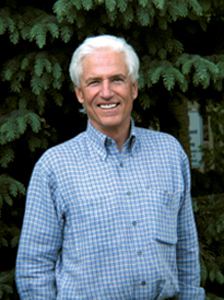USSA ratifies Strategic Planning Committee business model
The Olympic governing body for skiing and snowboarding, the U.S. Ski and Snowboard Association (USSA), this past weekend approved a plan to develop a long-term sustainable business model for future sport management. A report from an independent Strategic Planning Committee was ratified by the USSA Board of Directors at its 2010 annual meeting in Park City. The variable sport management plan is designed to give the USSA greater flexibility in how it provides support to elite athletes.
In December, 2008, the USSA’s President and CEO, Bill Marolt, commissioned an independent Strategic Planning Committee comprised of experts representing important areas of USSA’s sports, the snowsports industry and resorts. The mission of the committee was to develop a sustainable business model that provides future direction for USSA sport management, identifying methodology for evaluating funding direction and capitalizing on opportunities to achieve the USSA’s vision of being best in the world.
“Our USSA athletes have enjoyed great athletic success in recent years,” said USSA Chairman Dexter Paine. “But we’ve also had dramatic growth in the number of new Olympic sports with more on the horizon. It was a good opportunity to look at our current structure and determine the best sustainable business model for the future.”
The USSA is the most diverse of all Olympic sports organizations in America, managing six unique sport programs. After a half-century of little change in traditional alpine and nordic sports, the last two decades have seen explosive growth with the addition of freestyle and snowboarding and new events in nordic. The USSA has taken on management of new sports or events in each of the last six Olympic Winter Games – even more at the World Championship level. And the International Olympic Committee is presently considering several new Olympic events as early as 2014.
 Under the leadership of board member and longtime ski industry executive Andy Daly, the committee took a deep look at each of the USSA’s sport programs including the athletic program structure and funding models.
Under the leadership of board member and longtime ski industry executive Andy Daly, the committee took a deep look at each of the USSA’s sport programs including the athletic program structure and funding models.
With an eye on current and projected sport changes, the Strategic Planning Committee advocated a variable sport management model for the future. That model entails looking at each sport separately to determine the best and most sustainable athletic business model.
“As we looked at the different USSA sports we found a great diversity in their requirements and potential to contribute to the sustainability, continued relevance and athletic success of the USSA,” said Daly. “We felt strongly that taking a variable approach to the management of each sport offered the greatest opportunity for our overall success in the future.”
Under the plan, the USSA will continue to provide basic governance in all sports including rules, competitions, ranking and selection and sport management. Additional program funding for development or elite programs or access to high performance services would be determined on evaluation of the sports within the decision-making process established through the Strategic Planning Committee.
Under the variable sport management, the USSA would have greater options for supporting athletes from the traditional Team structure to individual athlete funding models in sports where that may be more appropriate.
The Committee also looked at funding prioritization across the four year Olympic cycle. Under the plan, a focus in the first two years of the Olympic quad would be on funding of infrastructure projects, both for revenue production and athletic performance. Funding priorities in the two years leading up to the Olympics would shift to sports with an immediate opportunity to capitalize on Olympic medal potential.
Revenue generation was also addressed by the committee. An outgrowth of the committee’s direction has been the recent restructuring of all revenue production in the organization, outside of Foundation-based private giving, under a single chief revenue and marketing officer.
“Over the years our athletes have benefited from a strong sales and marketing effort that has provided revenue for athletic programs,” said USSA President and CEO Bill Marolt. “With the recent success of our athletes in Vancouver, the USSA is uniquely positioned to capitalize on this opportunity through a dramatic and innovative structural change in our approach to revenue production and marketing.”
Implementation of the plan’s direction will take place immediately as the USSA prepares for the Sochi Olympic Winter Games in 2014, including development and execution of the best mechanisms to enable support for elite athletes based on the committee’s recommendations.
A summary of the USSA Strategic Planning Committee report is available at:
https://www.ussa.org/magnoliaPublic/dms/executive/docs/USSAStrategicPlanningCommitteereport.pdf
Andy Daly photo courtesy of Alpine Mountain Ranch





















